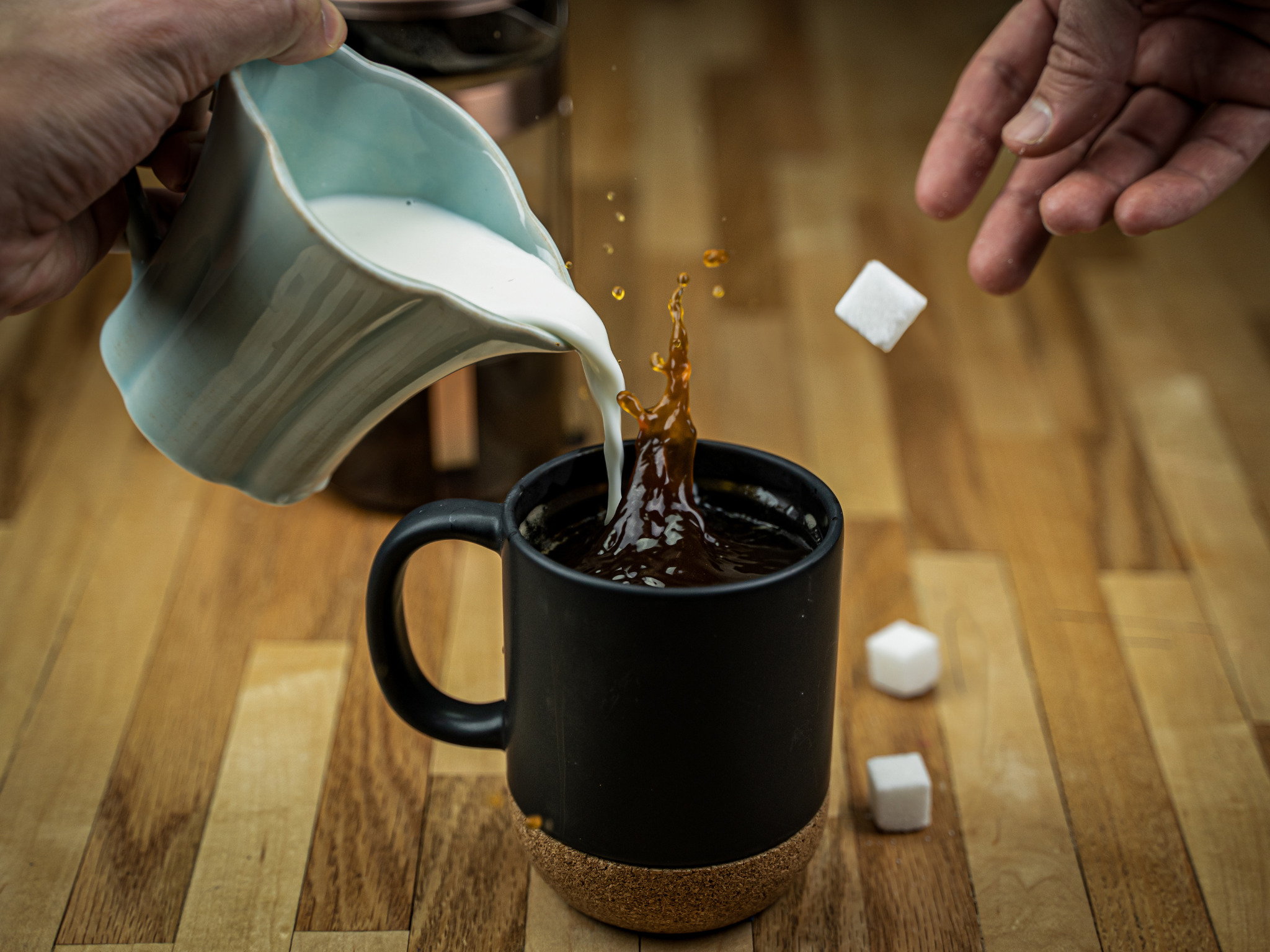This Startup is Making Animal-Free Creamer from Yeast to Change the Way You Drink Your Coffee
5 Mins Read
Swiss food tech company Cultivated Biosciences has unveiled the first proof of concept for its yeast-based fermented fat, in the form of a dairy-free coffee creamer prototype.
What would you say if I offered you fungus in your coffee? Like, a thick, creamy, fatty white fungus?*
“Yikes”?
A Swiss startup is hoping to change your opinion with its new innovation, a coffee creamer made from fermented yeast that is set to become your new dairy-free mate (get it?).
After two years of R&D, Cultivated Biosciences has unveiled the ingredient as a first proof of concept using its fermented fat, which was available for tasting at a MISTA event in San Francisco last month. MISTA is a food innovation ecosystem and accelerator in the Bay Area, convening food industry players and startups during Growth Hacks to kickstart partnerships. Cultivated Biosciences’ creamer was developed during one of these events, which focused on alternative fats, in collaboration with partners including AAK, Ingredion, Givaudan and Danone.
The company says it plans to file for US and EU regulatory approval soon, with a market debut in the former earmarked for 2025.
The importance of mouthfeel in vegan coffee creamers
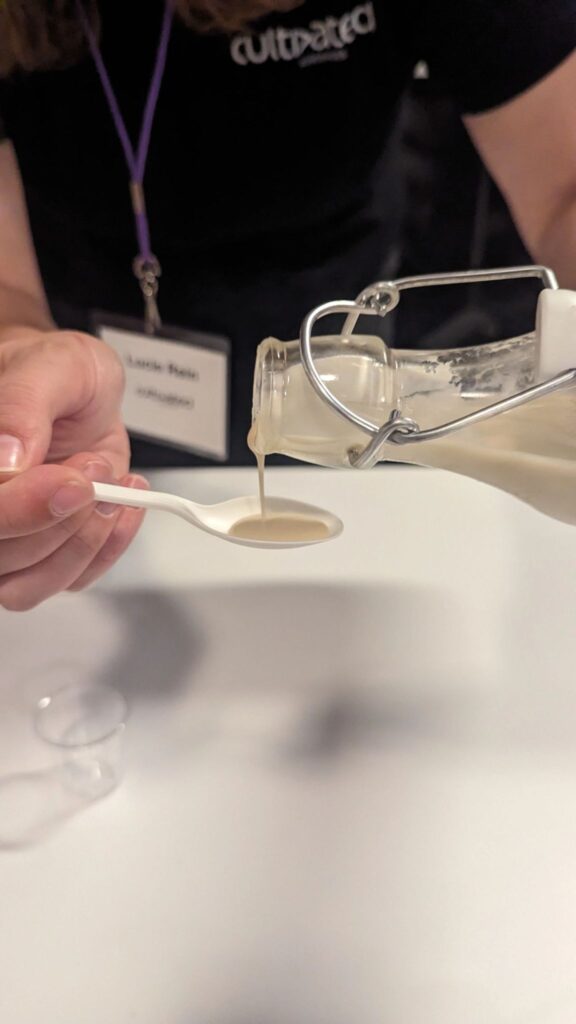
For Cultivated Biosciences, texture is the name of the game. And as a company dealing in dairy alternatives, it needs to be too. A four-country, 1,500-person survey by Kerry last year revealed that sensorial attributes are the top area for improvement when it comes to alt-milks, cited by 34% of respondents.
In fact, 76% of consumers prefer ‘a nice creamy mouthfeel without the dairy’, while 77% think non-dairy products are more appealing if they have ‘better body and texture’. The report outlined a few major challenges for manufacturers to overcome, one of which was mouthfeel. People are after a cleaner taste experience with a creamy, fatty mouthfeel that replicates conventional dairy.
Most non-dairy creamers don’t cut it – and those that do lack in flavour. To solve this problem, Cultivated Biosciences uses biomass fermentation with an oleaginous yeast, a strain that accumulates fat during growth. Unlike many fermentation-derived dairy companies, which are developing proteins to mimic those found in dairy (like whey and casein), the Zurich-based startup is banking on fat to deliver a better taste and texture experience.
The coffee creamer – which combines its fat ingredient with plant protein, sugar and natural flavourings – is described as “creamy, clean label, white and stable in coffee”, which the company adds is something not offered by “commercially available plant-based creamers”. It tastes like “a regular American commercial creamer”, with the fermented yeast fat providing the lipids and the texture to the formulation.
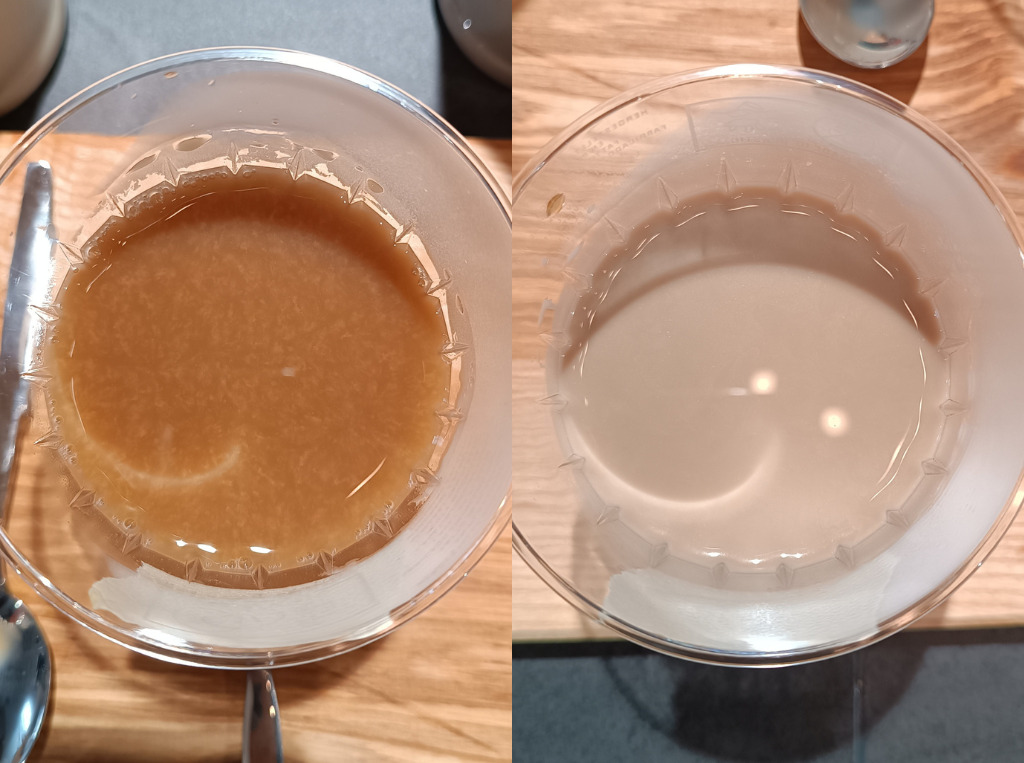
It addresses another major hurdle for plant-based dairy products. Without acidity regulators, most milks curdle in coffee, thanks to the often lower pH of the latter. Cultivated Biosciences’ version, though, remains stable in such lighter-roasted coffees, without requiring any additives.
“Cultivated Biosciences rose to the challenge and delivered a prototype with superior benefits to commercially available plant-based creamers in the US,” said Céline Schiff-Deb, biotechnology head at MISTA.
Targeting a 2025 US launch
The company, which raised $1.5M in pre-seed funding last year, is tapping into a popular market. In the US – where coffee creamers reign supreme – 55% of people used coffee creamers in 2020, according to census data crunched by Statista. This trend has continued, with 56% of Americans expected to use these coffee mates in 2024.
The global market for coffee creamers, in fact, was worth $4.5B last year and is set to grow by 5.6% annually through 2030. In the US alone, sales reached $2.8B last year, up by 21.2% annually, as per Nielsen, which highlighted vegan creamers as one of five future coffee trends to watch. This is reflected by SPINS data analysed by alt-protein think tank the Good Food Institute, which shows the category’s dollar and unit sales growth have doubled from 2019-22. Vegan creamers – a segment populated by Nestlé, Danone, Chobani, Califia Farms and Elmhurst (among many others) – occupied 12% of the total market share in terms of dollar sales last year, and their growth has outpaced conventional creamers.
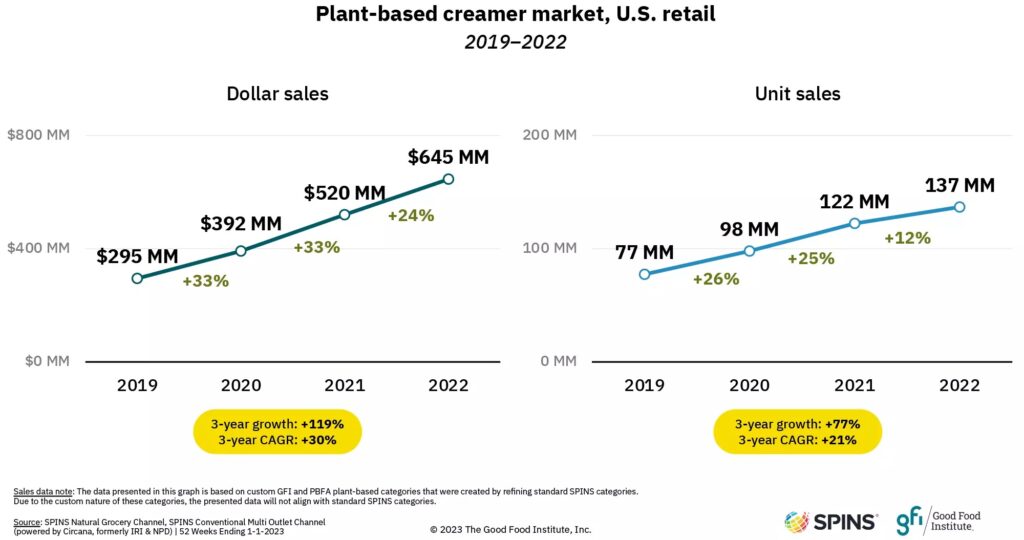
There are also some legislative and regulatory issues for Cultivated Biosciences to contend with. For one, there’s the labelling challenge. While plant-based milks have been facing proposed bans for using dairy-related terms on packaging, with proponents arguing that these confuse consumers, things seem to be even more confounding on the other end of the spectrum.
There is no regulatory definition for “dairy-free” in the US, but the rules for “non-dairy” mean that products like coffee creamers can still contain dairy proteins like casein. Since many of these are made using caseinate, non-dairy creamers are – incredibly – not actually dairy-free.
The other obstacle is regulatory approval – but Cultivated Biosciences is already making progress on that, with plans to submit dossiers to the FDA in the US and the EFSA in the EU soon. The brand will look to first debut in the US, during the first half of 2025, as the regulatory process is faster there, it confirmed to Green Queen.
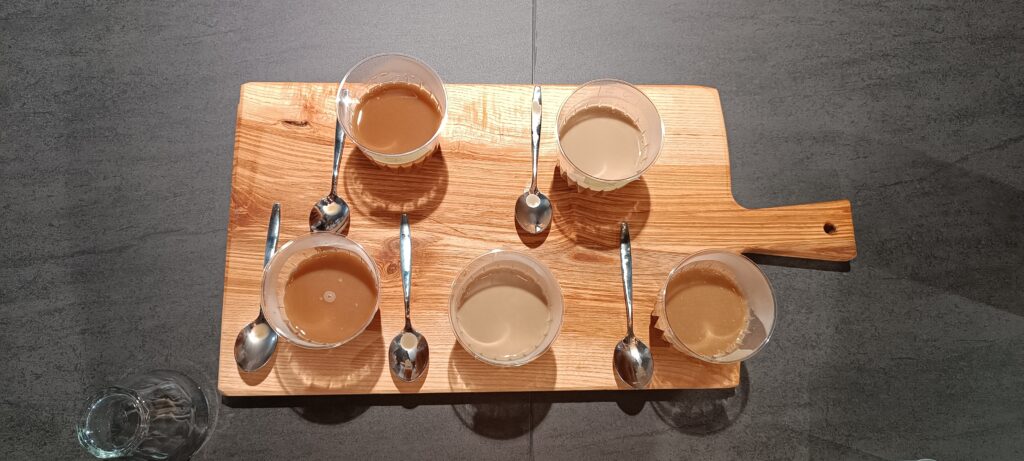
“We are proud to show the industry the value of our ingredient in a convincing final product application, it marks the beginning of our path to commercialisation,” said Cultivated Biosciences founder and CEO Tomas Turner. The startup says it will keep developing prototypes for other alt-dairy categories with industry partners to “close the sensory gap”. While it’s currently validating these applications, it confirmed that it will stay in the dairy realm.
Other companies innovating with fermented fats include Zero Acre Farms, Yali Bio (both US), Nourish Ingredients (Australia), NoPalm Ingredients, Willicoft (both Netherlands), Colipi (Germany), and Clean Food Group (UK).
*Cultivated Biosciences uses yeast, not mycelium, which is more commonly associated with fermentation-derived fungi ingredients.

